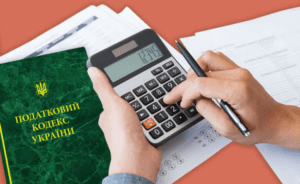
The OLX platform calls for a review of the provisions of Bill No. 14025 on the introduction of international automatic exchange of information on income received through digital platforms, and to take as an example the implementation of such rules in European Union countries.
“According to the proposed regulations, even those who sell only one book or jacket per year will be forced to pay tax or go through a complicated procedure to get a refund through the tax service. The new rules significantly complicate simple and secure online trading. Most individuals who sell goods on our platform are simply getting rid of things they no longer use,” the platform said in a statement.
OLX criticized the government’s proposal to require all private sellers to provide personal data to platforms, regardless of sales volume, as well as the need to pay a 5% personal income tax along with a 5% military levy, and the need to manually refund the tax through the tax service if the annual sales volume does not exceed EUR2,000. The company noted that the introduction of the rules would lead to higher prices for buyers and an increase in “shadow” sales outside digital platforms.
The company noted that it fully supports the objectives of the European DAC7 Directive and emphasized the importance of ensuring tax transparency. OLX insists on the implementation of the requirements of this directive, as has already been successfully done in EU countries.
“In these (European – IF-U) countries, private sellers are not subject to the rules if their annual sales do not exceed €2,000. However, entrepreneurs who trade through online platforms are identified, and their data is responsibly transferred to the tax authorities,” the platform explained.
OLX called on lawmakers to engage in a real dialogue with the market regarding the provisions of the bill. The platform, in turn, is ready to provide expert recommendations on the best international practices for implementing the DAC7 directive, the statement said.
As reported, according to the government bill, a personal income tax (PIT) rate of up to 5% will apply to accountable sellers, provided that they open a separate bank account for receipts from platforms and do not trade in excisable goods, as well as if they are not self-employed, do not have employees, and their annual income does not exceed 834 minimum wages (approximately UAH 6.7 million as of January 1, 2025). For anyone who does not meet these conditions, the general PIT rate remains at 18%.
The government’s submission of a bill to introduce the automatic exchange of information on income received through digital platforms such as OLX, Prom, Rozetka, Uklon, Bolt, etc. is a condition of the cooperation program with the International Monetary Fund. The government approved the relevant document in April and submitted it to parliament, but it was criticized for lacking a minimum threshold for application.

Croatia has a multi-level taxation system that covers both legal entities and individual entrepreneurs (IEs). Let us consider the main taxes applicable to these categories of taxpayers.
Main taxes for legal entities in Croatia:
There are separate taxes for individual entrepreneurs.
Other taxes and fees
The Croatian tax system is characterized by progressive and diverse taxes, which requires careful planning and accounting when doing business.It is recommended to consult with professional tax advisors to ensure compliance with current legal requirements and optimize the tax burden.
Source: http://relocation.com.ua/osoblyvosti-systemy-opodatkuvannia-v-khorvatii/

The Ministry of Finance of Ukraine has supported the proposal of the Association “Insurance Business” (ASB) and the League of Insurance Organizations of Ukraine (LIOU) on the inadmissibility of VAT taxation of commission remuneration of insurance agents, according to the press release of the ASB.
It is specified that the norm on VAT taxation was contained in the draft law of Ukraine “On Amendments to the Tax Code of Ukraine to improve the taxation of insurance activities in Ukraine”.
As reported, both associations jointly appealed to the Ministry of Finance, the Ministry of Economy, the State Regulatory Service, the National Bank with a request not to worsen the tax conditions of insurance business and not to violate the requirements of the EU Directive.
“Ukraine is moving to the EU, so we must check all tax innovations both with common economic sense and with the principles and norms in force in the European Union,” says Vyacheslav Chernyakhovsky, general director of the Insurance Business Association.
At the same time, the press release specifies that the imposition of VAT on commissions of insurance agents directly contradicts the EU Council Directive No. 2006/112/EC of November 28, 2006 “On the Common System of Value Added Tax”. Article 135 “Exemption from taxation of other activities”, which expressly stipulate that “Member States shall exempt from taxation … insurance and reinsurance operations, including related services provided by insurance brokers and insurance agents.
The report also notes that to substantiate their position, insurance associations have analyzed the performance of insurers of Ukraine for the first nine months of 2023 and conducted a representative survey of market participants. According to the results of which it became clear that the state would not receive economic effect from this innovation, and on the contrary, there would be unpredictable additional costs for administration, control and monitoring of VAT operations in insurance activities.
“According to our estimates, our proposals, supported by the Ministry of Finance, saved each insurance company at least 40-50 thousand UAH monthly,” – said Chernyakhovsky.
insurance agents, MINISTRY OF FINANCE, TAXATION, VAT, АСБ, ЛСОУ

The Verkhovna Rada has supported drone production in Ukraine by exempting components of unmanned aerial vehicles (UAVs) from value added tax and import duty for the time being.
Bills No. 9275 and 9276 were voted for by 284 and 289 people’s deputies at the plenary session of the Verkhovna Rada on Monday in the first reading and as a whole, respectively, parliamentarian Yaroslav Zheleznyak (Golos faction) said in a Telegram.
The bills amend the Tax and Customs Codes and help optimize UAV production and supply processes.
In particular, for the duration of martial law, components (materials, units, equipment units, components) of UAVs that enterprises import for their own activities for the production and repair of unmanned aerial vehicles are exempt from VAT and import duty.

Receipts of taxes and other charges to the general fund of the state budget in 2022 in terms of payments administered by the State Tax Service amounted to 694.4 billion UAH, which is 4.5 billion UAH, or 0.6% below the indicative indicators, the head of the parliamentary committee on finance, tax and customs policy Daniel Getmantsev said.
“More than last year the fact of January-December 2021 paid 80.0 billion UAH (+13.0%),” he wrote in a telegram on Saturday.
Hetmantsev said that in December 2022 the general fund of the state budget received 55.8 billion UAH, which is 12.6% or 6.2 billion UAH more than the indicator, and by 12.3% or 6.1 billion UAH more than the plan 2021.
According to him, such figures are largely due to an increase in revenues from the value added tax (VAT) on manufactured goods compared to last year by almost 1.4 times, or 58.1 billion UAH – up to 213.9 billion UAH. This is also by 19.1% or 34.3 billion UAH more than the indicative plan.
The head of the committee added, without specifying the amount of VAT refund, that in December the indicative indicators for this tax are exceeded by 22.5%, or 3.2 billion UAH, and amounted to 17.5 billion UAH, which is 13.4% or 2.1 billion UAH more than in December 2021
Hetmantsev also noted that the excise tax (made + imported) brought the budget 8.6 billion UAH, or 270 million more to the figure of the Ministry of Finance.
On the eve of the State Customs Service reported that in 2022 transferred 300.8 billion UAH of customs payments to the state budget, including 36.7 billion UAH in December compared to 33.4 billion UAH in November and 32.5 billion UAH in October.
The department recalled that in January and February of this year the receipts were 37.2 billion UAH and 39.6 billion UAH respectively, then collapsed in March and June to 7.7 billion UAH, 8.8 billion UAH, 9.5 billion UAH and 12.7 billion UAH respectively.
However, in the following months, including due to the abolition of import privileges introduced at the beginning of the war, they increased significantly, amounting already in July to 22.9 billion UAH and 30 billion UAH in August and September.
As it was reported with reference to the Ministry of Finance, the State Tax Service revenues to the general fund of the state budget in 2021 were 614.4 billion UAH, an increase of 3.1%, or 18.4 billion UAH above the budget.
Customs revenues last year brought 409.3 billion UAH to the general fund, and another 75.6 billion UAH to the special fund, which is 35% or 126.3 billion UAH more than in 2020. Including in December 2021 the total transfers of the State Customs Service amounted to 52.7 billion UAH, and during martial law in Ukraine (February 24) – 226.4 billion UAH of customs payments.
It should be noted that under martial law the functionality and positive dynamics of the increase of transfers of customs duties and other payments to the revenue part of the budget has been maintained.
Thus, the indicators of revenues increased from UAH 7.7 billion in March to UAH 36.7 billion in December this year.